Identifying Indicators and Reasons for Children Needing Support
VerifiedAdded on 2021/01/02
|5
|817
|346
Homework Assignment
AI Summary
This assignment delves into the critical indicators and underlying reasons for children requiring additional support, encompassing various facets such as poverty, social disadvantages, disability, communication barriers, abuse, and mental health challenges. The analysis explores the impact of these factors on children's well-being, examining issues like rurality, lack of information, attitudinal and cultural influences. The paper identifies the specific vulnerabilities associated with each indicator, shedding light on the need for tailored support systems. Furthermore, it examines the consequences of these challenges, including the lack of financial backing, limited access to resources, and potential for abuse or marginalization. The assignment references several sources, including books and journals, to provide a comprehensive understanding of the topic, emphasizing the need for societal and governmental interventions to improve children's lives.
1 out of 5
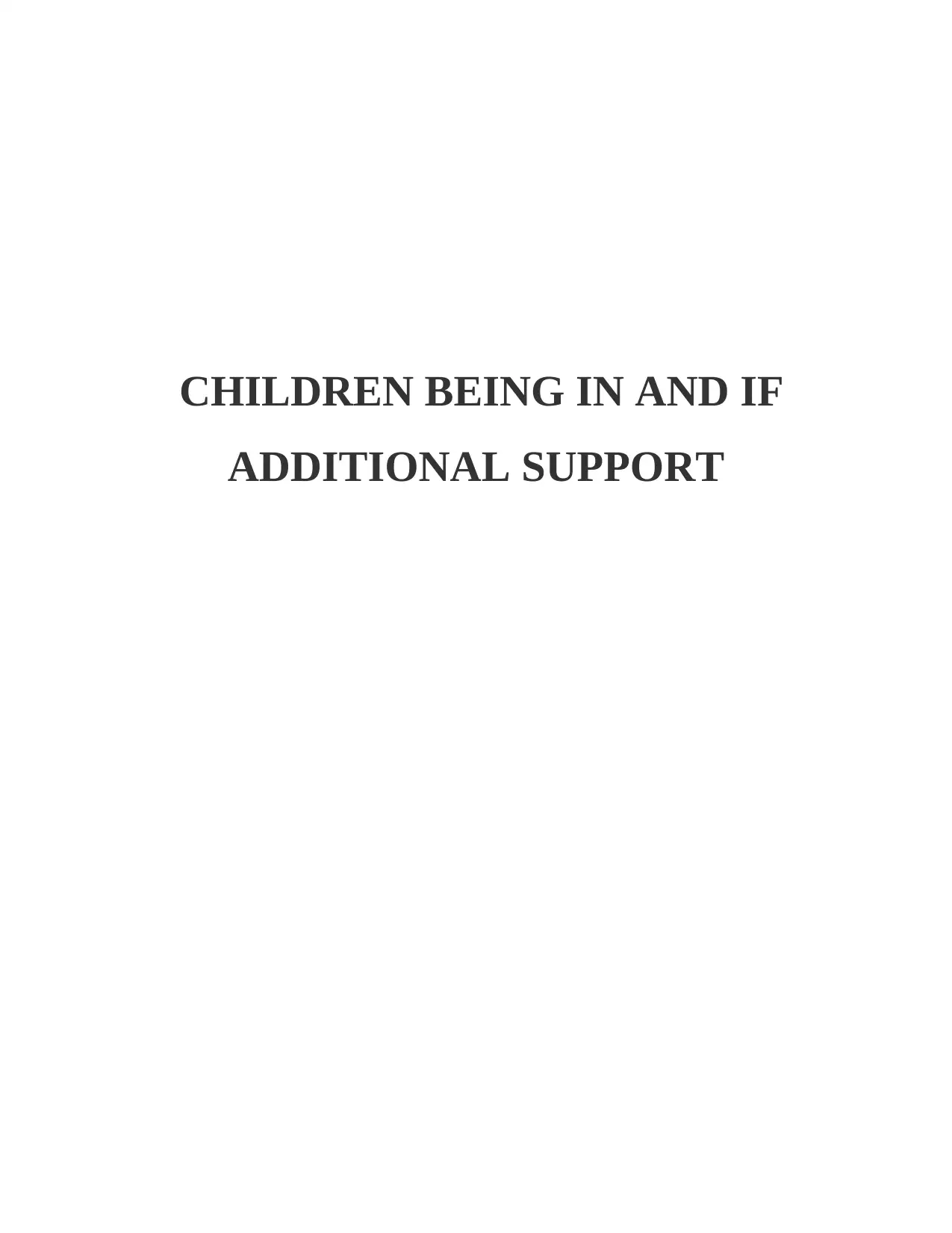
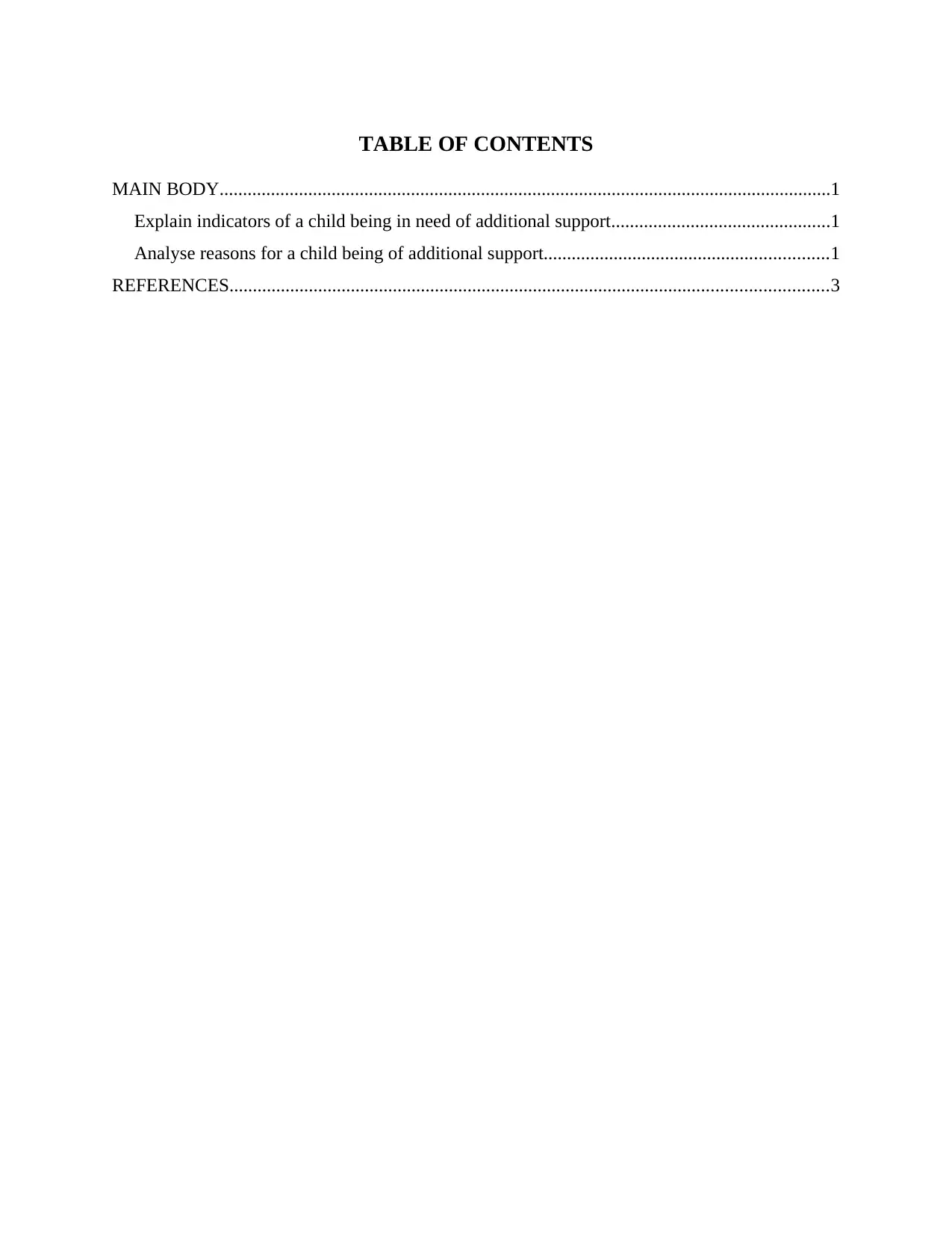
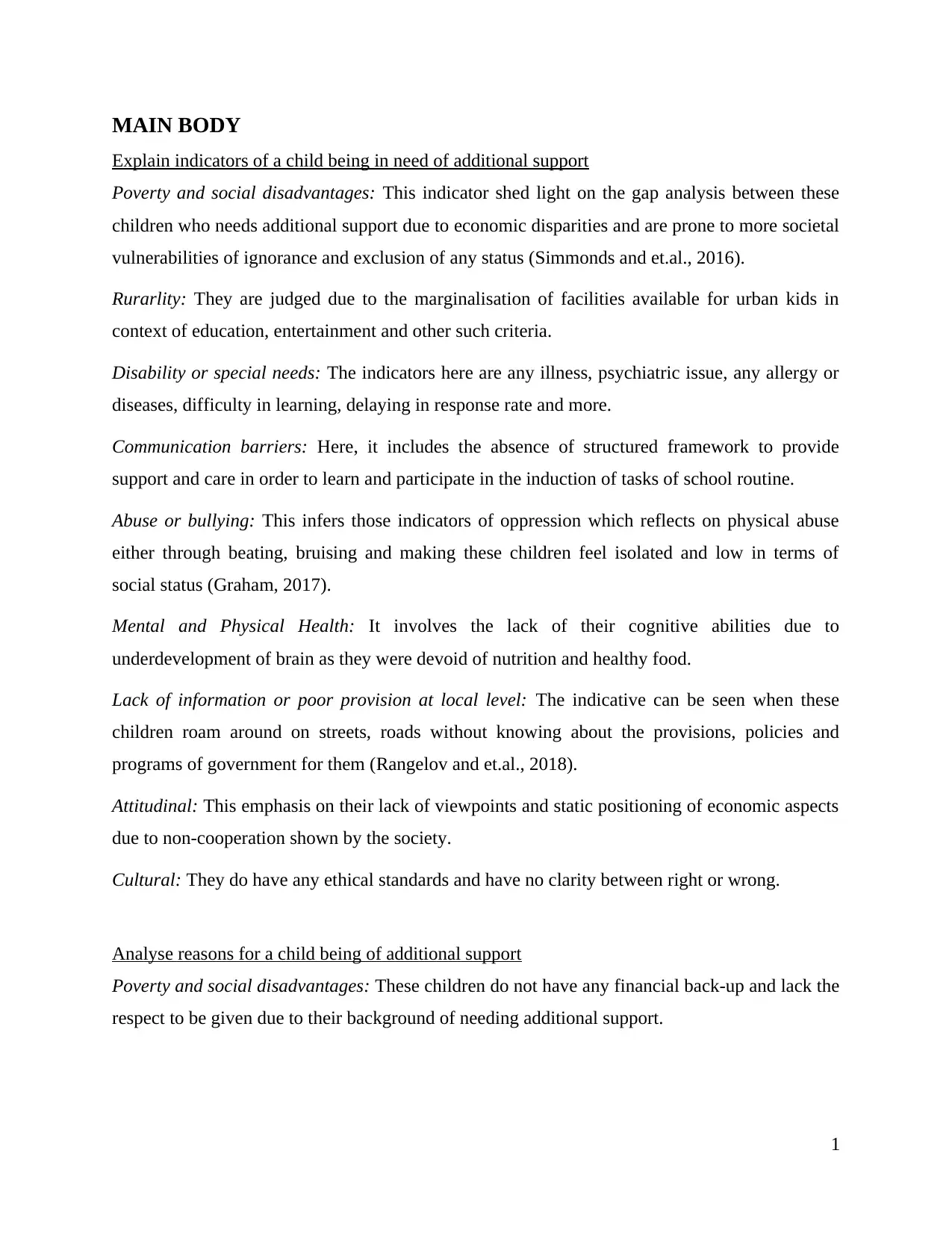

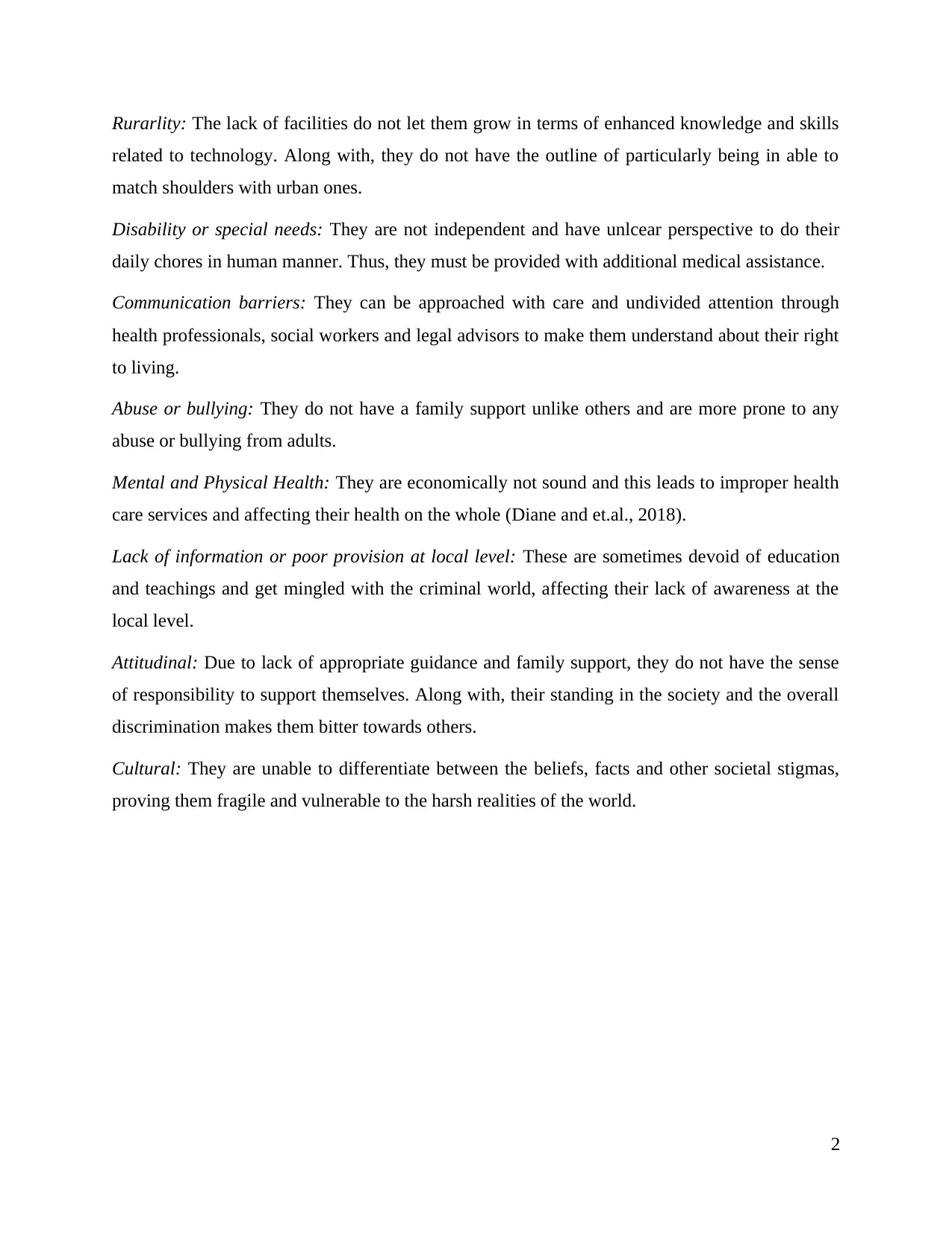
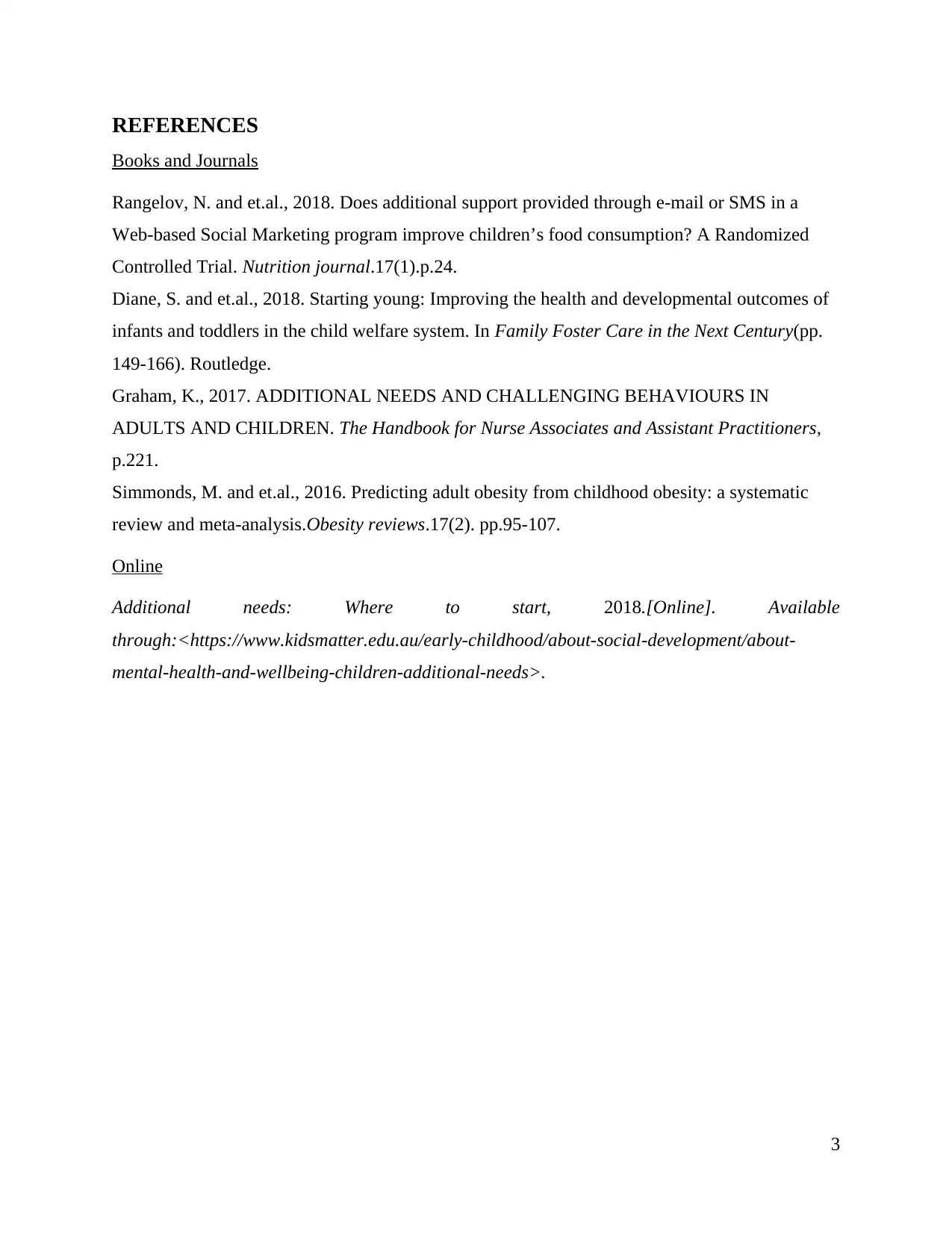






![[object Object]](/_next/static/media/star-bottom.7253800d.svg)